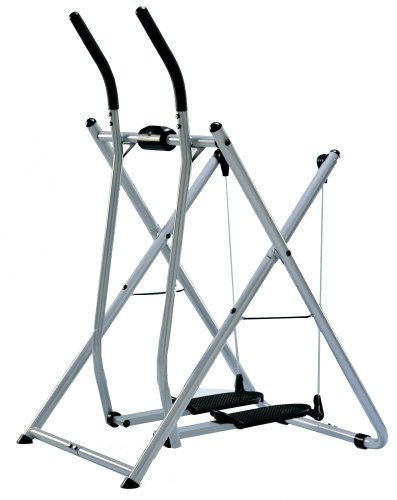Years ago (c. 1983) before I joined a gym, I tried various exercise programs to keep fit. With my meager budget at the time, my options were rather limited. I tried running at the high school track since that was a cost-free activity. I forced myself out on to the hot asphalt track for a couple of weeks one summer, but eventually gave up because it was too monotonous and my knees started getting sore from the constant pounding.
I then decided to invest in a Precor rowing machine, which I purchased from a local sporting goods store. It set me back about 5, but I felt it was worth it since I desperately wanted to get in shape. Rowing machines were also quite the rage back then and I wanted to get in on the action too!
I used the Precor rower religiously for a while. After all, I had sunk a good portion of my savings into it! The machine itself was rather simply constructed and as a result, there wasn't much that could malfunction or break on it.
Of course it did squeak like the Dickens and also left ugly black scuffmarks on my carpet. I eventually put a piece of scrap carpet under it to protect my carpet. I also got blisters on my hands from the "oars" and eventually started wearing my winter gloves to protect my hands.
Now fast forward to the 21st century. Rowing machines have really come a very long way since my primitive Precor machine! They use some of the very same technologies that are also employed in the top-of-the-line elliptical trainers. Features found on higher end ellipticals are also found on many rowers today such as magnetic resistance systems that are smooth and quiet. They also have heart rate monitors either built in to the handle grips or via wireless chest straps and a Polar interface. And of course, they have consoles that display distance, time, and calories burned just like most elliptical trainers.
So which is the better piece of fitness equipment? Let's take a look at some criteria that should be used when evaluating any piece of exercise equipment:
*Safety - rowing machines are relatively safe, but care must be used in learning the proper exercise form. Unfortunately, many people don't use proper form when using a rowing machine and put undue stress on their lower backs. Like an elliptical trainer, a rowing machine is low impact, but since the legs are flexed and extended, this puts stress on the knees, which could be uncomfortable for people with knee problems.
*Ease of use - as with safety, learning the proper use of a rowing machine is vital. Unlike an elliptical trainer, where its use is fairly intuitive, a rower requires proper instruction and practice in its use. There is more coordination required between the lower and upper body when using a rower. However, this shouldn't deter you from using a rowing machine. Just take the time to ask for instruction from a qualified staff member or trainer at your health club or gym.
*Quality of workout - a rowing machine can provide a great cardio-vascular workout. It helps to monitor you heart rate and stay within the appropriate target zone for your age, condition, and training objective. As with an elliptical trainer, the involvement of both the upper and lower body can provide all around muscle toning.
*Affordability - rowing machines parallel elliptical trainers in price range. Like ellipticals, they span the gamut from cheap models to top-end, commercial grade units costing several thousand dollars. And like ellipticals, you typically get what you pay for. So avoid the cheap stuff unless you want the grief and aggravation that goes along with it!
Rowing machines and elliptical trainers are both very worthy pieces of exercise equipment. If you have the luxury, then why not use both? Cross training by switching up between the rowing machine and elliptical trainer will keep your body challenged while keeping your workouts fresh and enjoyable.
And what about that Precor rowing machine I bought back in 1983? It's still sitting in my storage closet. And what about Precor? Well, they went on to invent the first elliptical trainer 12 years later in 1995.











